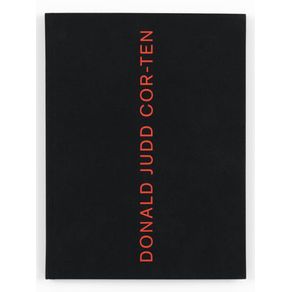The work of Donald Judd (1928–94), one of the most significant American artists of the postwar period, has come to define Minimalist art, a label to which the artist strongly objected. Wanting to create works that could assume a direct material and physical presence without recourse to grand philosophical statements, Judd eschewed classical ideals of representational sculpture and created works that relied on clear, definite objects. Donald Judd: Cor-ten represents the first-ever focused examination of Judd’s works in Cor-ten steel, which he began to produce in earnest in 1989 and would continue to elaborate on until his death in 1994. Cor-ten is an alloy that makes steel more resistant to corrosion, and eliminates the need for paint. With its distinctive red-brown patina, Cor-ten afforded Judd a new medium for exploring the relationship between surface and volume, as well as color and form. Prior to 1989, Judd executed a handful of works in Cor-ten primarily as outdoor commissions or site-specific works. Published on the occasion of the 2015 exhibition at David Zwirner, New York, and and designed in close collaboration with Flavin Judd and Judd Foundation,Donald Judd: Cor-ten sheds new light on a body of work that represents the culmination of three decades of Judd’s output.



